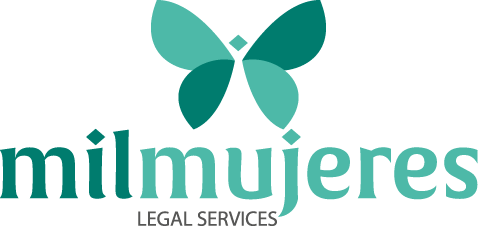You’re tired of struggling with your addiction and ready to make a change. But the idea of going to an inpatient rehab center terrifies you. What if there was a way to get clean and sober while still living at home? Outpatient rehab may be the answer you’ve been looking for.
If you’re ready to change your life for the better through rehab but want to do it on your terms, outpatient treatment is the perfect solution. It allows you to get sober and learn skills to stay that way – all while keeping your everyday life intact.
What Is Outpatient Rehab?
Outpatient rehabilitation is a form of treatment for individuals seeking help with drug or alcohol addiction. Unlike inpatient rehab, where individuals stay at a treatment facility for an extended period, outpatient rehab allows individuals to attend treatment sessions during the day and return home each night. This flexibility enables them to maintain their daily routines and responsibilities.
Outpatient treatment programs can take place in various settings, such as local health department offices, counselor’s offices, mental health clinics, or hospital clinics. These programs offer different levels of attendance based on the individual’s needs and the intensity of their addiction. Here are a few common types of it:
Intensive Outpatient Treatment (IOP)
Intensive outpatient treatment is a rigorous form of outpatient program, typically involving attendance for 3 to 7 days per week. Each day’s session lasts around 3 hours, and individuals usually have one individual therapy session per week. The minimum requirement for intensive outpatient treatment is typically 9 hours per week. This level of care provides more frequent and focused therapy to address the immediate needs of individuals dealing with substance abuse.
Partial Hospitalization Programs (PHP)
Partial hospitalization programs offer a higher level of care than traditional outpatient programs. Individuals attend treatment sessions during the day and return home in the evening. PHPs are typically designed for individuals who require a more intensive level of support due to the severity of their addiction or co-occurring mental health disorders.
Standard Outpatient Therapy
Standard outpatient therapy is a longer-term treatment option that involves attending 1 or 2 sessions per week for up to a year. The sessions are less frequent compared to intensive outpatient treatment because the focus is on sustained progress and ongoing support over an extended period.
These programs often include a combination of individual therapy, group counseling, medical supervision, medication management, and holistic therapies. It’s important to note that the suitability of outpatient rehab depends on the individual’s unique circumstances. Consulting with healthcare professionals or addiction specialists can help determine the most appropriate treatment option for an individual’s needs.
What are the Benefits of Outpatient Rehab?
Outpatient rehab isn’t for everyone, but for the right person, it can be an extremely effective way to get addiction treatment while avoiding the disruption of inpatient rehab. The significant benefits of outpatient rehab are:
-
- You can stay at home. You get to sleep in your own bed and be with your family. This can help you practice recovery skills in your everyday environment.
- It’s often more affordable. Outpatient care typically costs less than residential rehab since you’re not paying for room and board. Insurance plans may cover all or part of the cost.
- You have flexibility. You can continue working or going to school while getting treatment. The program works around your schedule.
- Privacy and less disruption. There’s less stigma and life changes. You can keep getting help discreetly without disrupting your daily routine.
- Provide personalized care. The treatment approach can be adjusted and modified as necessary throughout the course of the program. It allows targeted interventions and a focus on addressing the unique challenges and circumstances of each person.
- Transition support. Outpatient rehab helps you smoothly transition back to regular life in a gradual way. You learn coping strategies to prevent relapse when faced with triggers again.
- Offers a comprehensive treatment approach. Outpatient rehab includes individual counseling, group therapy, educational sessions, medication management, and holistic therapies. This multi-dimensional approach addresses the physical, psychological, and social aspects of addiction.
Is Outpatient Treatment Right for Me?
Deciding if outpatient treatment is right for you depends on several factors. Consider the severity of your addiction, your living situation, your health issues, and your level of support. Outpatient rehab may be a good option if:
-
- Your addiction is relatively new or mild. If you’ve only recently started abusing drugs or alcohol or are not physically dependent yet, outpatient treatment can help you establish recovery and avoid relapse.
- You have a stable living situation and a strong support system. It’s easier to stay committed to your recovery when you have people encouraging you at home. Outpatient rehab allows you to stay connected to your everyday support network.
- You have physical or mental health issues. If you need specialized medical care or therapy, outpatient treatment may be better suited to your needs. You have access to doctors and counselors while still living at home.
- You need flexibility. Outpatient rehab lets you continue working, caring for family, or going to school while getting treatment. The programs are often part-time so you can balance your usual responsibilities.
- You’re motivated to recover. Outpatient treatment requires a significant time commitment and dedication on your part. You must be motivated to change your behavior, attend all the necessary therapy or counseling sessions, and avoid triggers.
- You’ve relapsed before. For some, the structure of inpatient or residential rehab is necessary to establish long-term sobriety. If you’ve relapsed multiple times, you may benefit more from 24-hour care and monitoring.
Casco Bay Recovery offers outpatient treatment programs that aim to offer comprehensive and accessible care to those struggling with addiction, allowing them to receive treatment while continuing to live at home and maintain their daily responsibilities. Contact us today to learn more about our programs and take the first step toward recovery!

